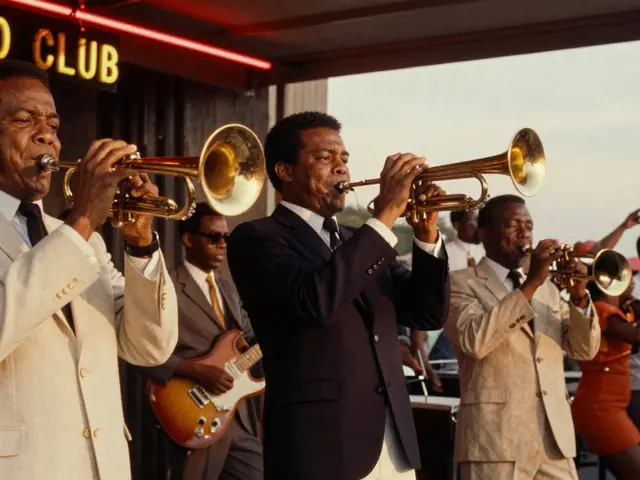Origins and Evolution of Country Music
The journey of country music began in the rural heartlands of America, where folk tunes, Western ballads, and blues elements collided to form a distinctly American sound. This music genre, deeply intertwined with the lives of the working class, initially captured the hardships and stories of rural Americans, especially in the Appalachians and the South. It was in the 1920s that country music began to find a broader audience, thanks to the proliferation of radio stations and the first commercial recordings. Artists like Jimmy Rodgers, known as the 'Father of Country Music', and the Carter Family began to endear themselves to audiences across the nation with their heartfelt performances and relatable lyrics.
In the following decades, country music evolved by incorporating elements from other music forms, yet it always retained its core themes: love, loss, and hardship. The 1940s and 1950s witnessed a surge in popularity with stars like Hank Williams and Johnny Cash, whose songs spoke of personal ache and societal issues. This era also saw the birth of subgenres such as honky-tonk and rockabilly, enriching the main genre with diverse sounds and broadening its appeal.
As the American society transformed, so did country music, mirroring and sometimes influencing changes. The 1960s and 1970s introduced artists like Dolly Parton and Willie Nelson, who not only pushed the boundaries of traditional country music but also addressed social issues such as women's rights and political freedoms. This period marked a shift towards more introspective and socially conscious lyrics, a trend which continued into modern country music.
Influence on American Identity and Culture
Country music's contribution to American cultural identity is profound and multifaceted. At its core, country music is a narrative of the American experience, woven into the very fabric of the nation's identity. Songs about everyday life, the joys and struggles of the average American, resonate deeply with audiences, offering both a sense of belonging and understanding. The stories told through country songs are often seen as a reflection of the American spirit – resilient, reflective, and rooted in community.
Artists like Johnny Cash and Loretta Lynn used their music as a platform to express cultural and political sentiments, influencing not just music lovers but the broader socio-political landscape. For example, Cash's 'Man in Black' became an anthem for the downtrodden and voiced the social injustices of his time.
The genre's reach and appeal have made it an influential component of American pop culture, affecting other music genres, fashion, and even political campaigning. Presidential candidates often use country songs to connect with voters, tapping into the genre's ability to evoke patriotism and traditional values. Moreover, events such as the Grand Ole Opry have not only promoted country music but have also become a cherished part of American heritage, attracting thousands of visitors annually and serving as a cultural nexus.
In conclusion, country music is not just a musical genre; it is a powerful cultural force that has shaped and reflected the American psyche over the decades. From its humble beginnings to its status as a staple in American music, it continues to influence and inspire, proving that music can indeed serve as a window to the soul of a country.






